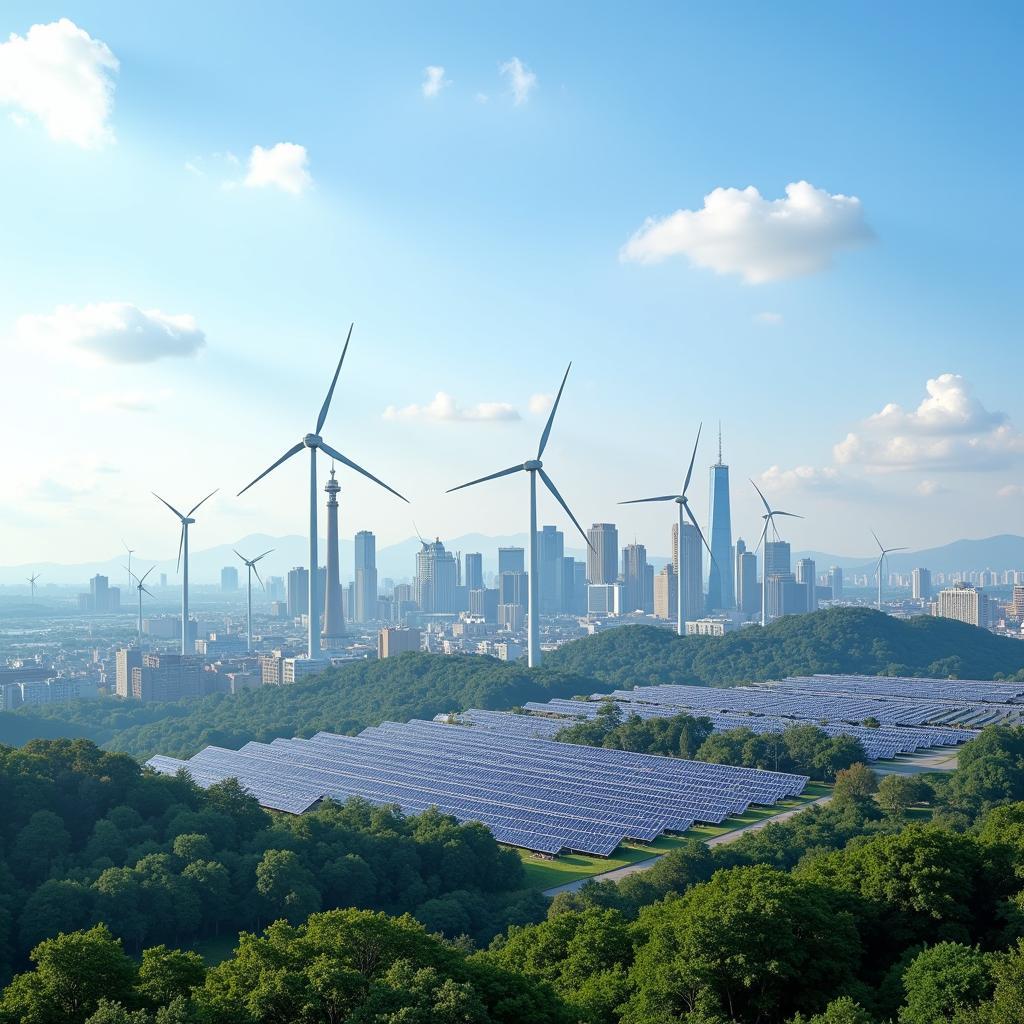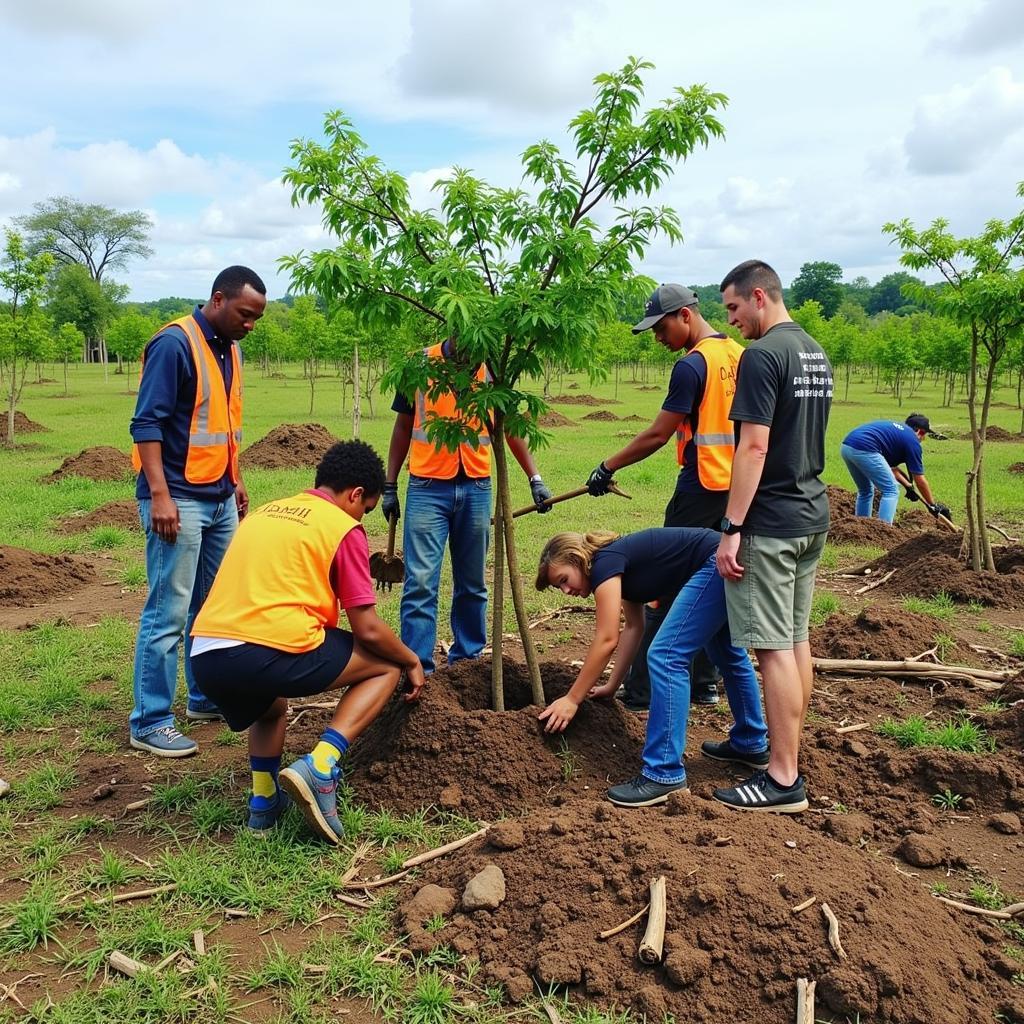In a world grappling with climate change and resource depletion, the concept of an environmentally sustainable society has become less of an idealistic vision and more of a critical necessity. But what does it truly mean to live in a society that exists in harmony with our planet?
An environmentally sustainable society is one that strives to meet the needs of its present inhabitants without compromising the ability of future generations to meet their own needs. It’s about finding a balance between economic growth, social equity, and environmental protection, ensuring that our collective footprint on the Earth is a positive one.
Pillars of an Environmentally Sustainable Society
Building a truly sustainable society requires a multi-faceted approach that addresses key areas of our collective impact:
1. Responsible Consumption and Production
 People making sustainable consumption choices
People making sustainable consumption choices
A sustainable society starts with mindful consumption. This means shifting away from a culture of excessive consumption and planned obsolescence towards a circular economy that prioritizes reducing waste, reusing products, and recycling materials. We can achieve this by supporting businesses committed to ethical and sustainable practices, opting for durable and repairable goods, and embracing a minimalist lifestyle.
2. Renewable Energy Transition
 Renewable energy sources powering a city
Renewable energy sources powering a city
Breaking free from fossil fuels is crucial for a sustainable future. Transitioning to renewable energy sources like solar, wind, hydro, and geothermal power reduces greenhouse gas emissions and mitigates the impacts of climate change. This shift involves investing in clean energy infrastructure, promoting energy efficiency measures, and adopting sustainable transportation systems.
3. Conservation and Restoration of Ecosystems
 A community working together to restore a degraded ecosystem
A community working together to restore a degraded ecosystem
Protecting and restoring our planet’s biodiversity is essential for maintaining the delicate balance of our ecosystems. This involves establishing protected areas, implementing sustainable land management practices, combating deforestation, and restoring degraded ecosystems. Recognizing the intrinsic value of nature and promoting harmonious coexistence with all living organisms is paramount.
The Role of Individuals and Communities
While systemic changes are crucial, individual actions collectively create a ripple effect that can drive significant change:
- Making conscious consumer choices: Supporting eco-friendly products, reducing meat consumption, and minimizing waste.
- Embracing sustainable transportation: Utilizing public transportation, cycling, walking, and opting for electric vehicles.
- Conserving water and energy: Using water-efficient appliances, reducing energy consumption at home, and adopting renewable energy sources.
- Advocating for change: Engaging in political processes, supporting environmental organizations, and spreading awareness.
“Small acts, when multiplied by millions of people, can transform the world.” – Howard Zinn
Conclusion
Building an environmentally sustainable society is not an endpoint but a continuous journey of collective effort, innovation, and adaptation. It requires a fundamental shift in our values, behaviors, and systems. By embracing the principles of sustainability, we can create a future where humanity and nature thrive in harmony for generations to come.
FAQs
1. What are some examples of sustainable practices?
Sustainable practices encompass a wide range of actions, including using renewable energy, reducing waste and pollution, conserving water, promoting biodiversity, and supporting sustainable agriculture.
2. How can I contribute to a more sustainable society?
Every individual can play a role by making conscious consumer choices, reducing their carbon footprint, supporting sustainable businesses, and advocating for policy changes that promote sustainability.
3. What are the benefits of living in an environmentally sustainable society?
The benefits are numerous, including cleaner air and water, improved public health, enhanced biodiversity, reduced risk of climate change impacts, and a more equitable and just society.
4. What are the challenges to achieving environmental sustainability?
Overcoming challenges such as population growth, economic inequality, political resistance, and the entrenched interests of unsustainable industries requires collective action and global cooperation.
5. What are some resources for learning more about environmental sustainability?
Reputable organizations such as the United Nations Environment Programme (UNEP), the World Wildlife Fund (WWF), and the Sierra Club offer a wealth of information on environmental issues and sustainable solutions.
Need Support?
For any assistance or guidance on environmentally sustainable practices, feel free to reach out to us. You can call us at 02043854663, email us at [email protected] or visit our office at Khu 34, Bắc Giang, 260000, Việt Nam. Our dedicated customer support team is available 24/7 to assist you.